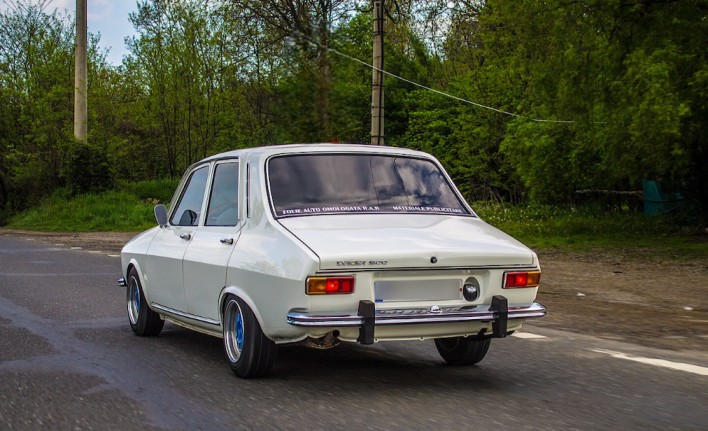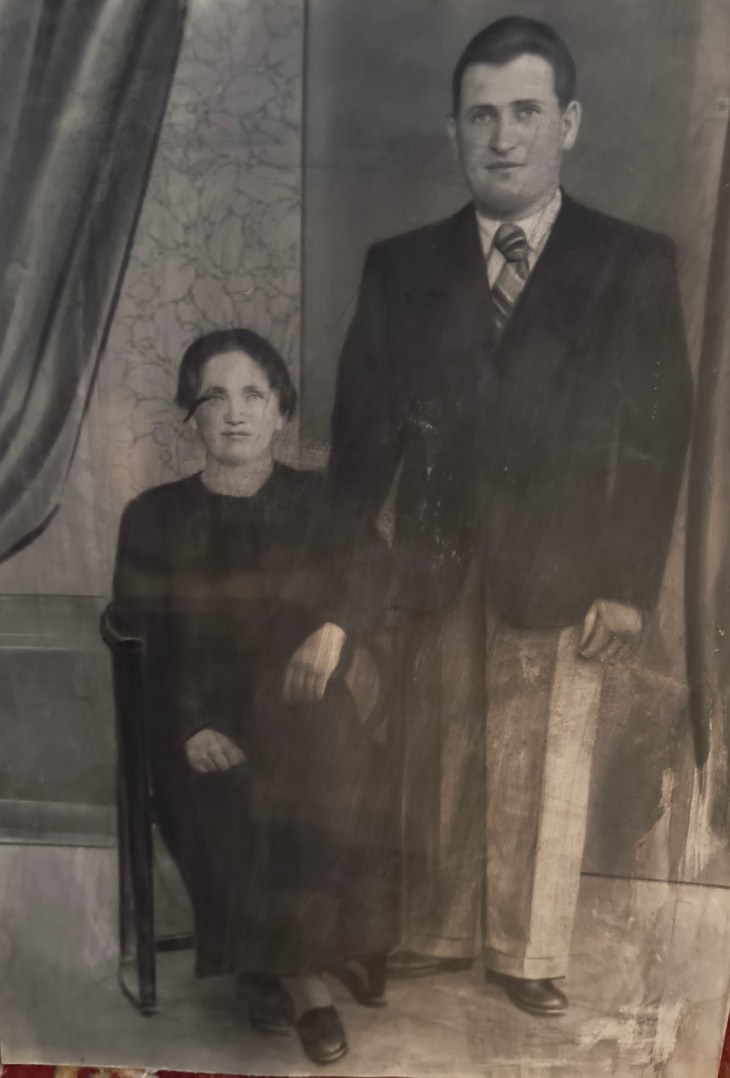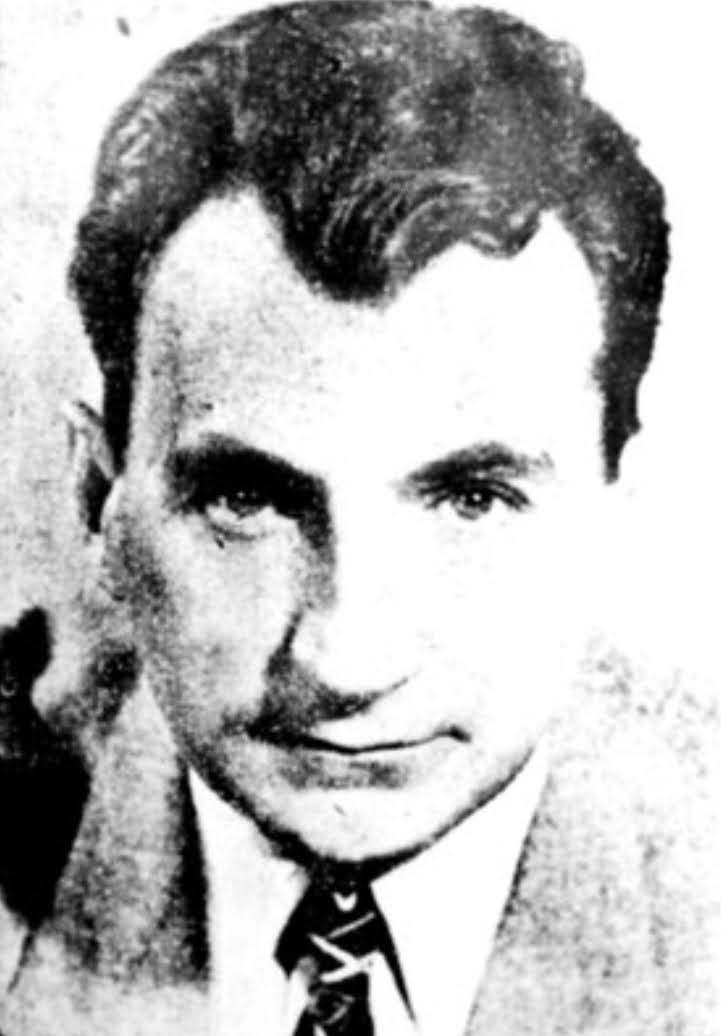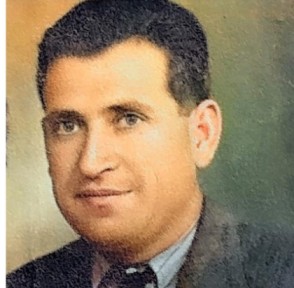On the fringes
I wasn’t particularly fond of my maternal grandfather: he was cold, demanding and had some strange ideas (like one should only kiss kids while they are sleeping, otherwise the kids will be spoiled, seriously, grandad?). I might have inherited a few unusual things from him if it was nature vs nurture that had anything to do with it (a liking for sprouted seeds, foraging and of walking in the fields). I respected his amazing professional achievements as agricultural engineer (I might write about this some other time) and I appreciated that bank of grandad has been helpful to my parents on a number of occasions.
Here I will describe how his extremely humble beginnings resulted in him crossing paths and receiving help from a politically and culturally significant family whose son was a leading figure at the start of the communist system in Romania though he had a sorcerer’s apprentice sort of ending.
My grandad, named Constantin and known as Costică for most of his life, was born at the bottom of the pile in the back of beyond, namely a tiny village (current population 175) in the county of Bacău, east Romania.
When I was about 8 we went to this village in my dad’s modest Dacia. This was not the perfectly fine car that Dacia is today but a communist era one.
The arrival of our car created a stir in the village with what might have been the whole village coming to see it and village kids asking for a ride.
My grandfather was received like a rock star, local boy done good, they all seemed so proud of him.

A joke of that era went: there are three kind of places in Romania: those that have a train station, those where the train passes through and places where people might have heard about the train. My grandfather village was definitely one place where people, maybe, possibly, might have heard about trains.
Some 75 years before our visit, Costică was born there to a single mum. I don’t know what was the story there, but this was not an an era or a place that was highly tolerant of single mums, so Costică really started at the bottom.
Obviously there are no photos of him as a child or teenager.
The first image I have a him is, strangely, a pencil drawing, made to look like a studio photo of him and his mother.
A mate of him, good at drawing, did this.

Costică was highly intelligent. He started primary school in a bigger village, a 40 minutes walk from his own. The often unsung hero of the Romanian villages, the primary school teacher spotted his potential and supported him to a better life through education. I know of many examples, both lived and from various Romanian novels, of primary school teachers doing that. Usually, the teacher convinced the parents, i.e. the dad, to take the hit of one less labourer and to invest instead in the schooling of the child.
Given the mother’s social status, it probably was different here, but somehow, and this was quite a feat, Costică started secondary school in the closest town, Bacău. (a 6h trek on foot from his village according to Google Maps). Costică was later known for walking very long distances on foot across fields but even for him this would be too much for a daily commute so he (or more likely the teacher) must have found a, no doubt, extremely basic, place to stay. Costică was born in 1907 so he must have attended this school from about 1918 to 1925.
In school, Costică befriended a boy called Pătru Pătrășcanu. Both the father and brother of this boy are historically significant.
Pătru’s father was Dimitrie D. (DD) Pătrășcanu, a writer, journalist, politician, deputy, dramatist and professor.

DD Pătrășcanu mixed with the creme of the Romanian culture at the time like in this photo of him with three Romanian writers that we study in school.

Pătru invited Costică to his home where he met the father (it’s probably safe to assume that Costică did not invite Pătru back). Pătrășcanu Sr took a liking on Costică and was, what we would call today, a mentor, role model and career advisor. Even more surprising and incredibly generous of him, Pătrășcanu Sr helped Costică financially. Exactly how much we don’t know, it wasn’t like an official scholarship, but it was something during the school and, more importantly, there was help both financial and with recommendations when Costică moved to Bucharest to study at the Institute of Agricultural Studies.
Once a student in Bucharest, Costică supported himself with various jobs and was of a legendary tightness that never left him his whole life even when he was making good money. But there was this crucial help at the key moment in his life.

Pătrășcanu Sr died in 1937 so he was at least spared some of the horrors to come.
Now for the other brother, Lucrețiu Pătrășcanu (his page is the source of most of my summary below),
He must have overlapped for a year with Costică’s time in Bacău and probably paid no attention to his younger brother's poor friend.
On the other hand, Lucretiu was quite the star from early on, so Costică was well aware of him, followed his career and frequently heard news about Lucrețiu.

Lucrețiu got into politics as a student, moving further and further left politically, while getting a law degree in Bucharest and later on, a PhD from University of Leipzig. He was very active as a journalist and become more radicalised after the bolshevic revolution in Russia.
He was one of the founding members of the Communist party in Romania in 1921 (known as PCR), frequently travelled to Moscow, was arrested repeatedly during the inter war periods and went on hunger strike during one arrest.

Pătrășcanu met representatives of the young Romanian King, Michael, in April 1944 in order to mediate an agreement between the monarch and the Communists regarding a pro-Allied move to overthrow
the head of the state, Antonescu and withdraw Romania, which was fighting the Soviets on the Eastern Front, from the German-led Axis.
Somehow, because of his background and education, Pătrășcanu was the acceptable face of communism to the other parties and the King, while his obvious commitment to the cause made him a true communist, or so it seemed.
The planned coup took place on August 23rd 1944 and Pătrășcanu authored the proclamation to the country which the king read on National Radio immediately after the coup. He also signed Romania's armistice with the Soviets, on September 12, 1944. Pătrășcanu was a member of the Romanian delegation to the Paris Peace Conference after the war, and one of the signatories of the Peace Treaty for Romania.
He was largely responsible for the success of the communist party had in controlling Romania's legal framework for the following years. It’s difficult to summarize all of this, but I think it’s fair to say that he tried to curb some of the Soviet excesses and protect national interests but he also was responsible for some of the most horrible policies of that era.
Pătrășcanu was progressively marginalized inside the Communist party. The Communist newspapers ceased referring to Pătrășcanu as "comrade", and used instead the more distant formula "Professor Pătrășcanu". This sounds ridiculous as a slight, but it was a sign.
On April 28, 1948, Pătrășcanu was first arrested by his beloved communists. In prison, he attempted suicide twice. He was accused of having been financed by "bourgeois" figures during the electoral campaign and being a double agent. Pătrășcanu was kept in detention until 1954, allegedly he was also tortured and then he was executed on 17 April after a show trial. Pătrășcanu refused to be represented by a lawyer, and even to organize his own defense and stated:
I have nothing to say, except that I spit on the charges brought against me.
The last twist in his saga came in in April 1968: the last Romanian communist leader, Nicolae Ceaușescu, posthumously cleared Pătrășcanu's name of these accusations confirming that all charges were made up.
Obviously, I am hardly a specialist, but I think any simple characterisation of Pătrășcanu as either hero or villain, as victim or criminal does not cover the complex truth. How could an obviously very clever, educated, charismatic, brave, surely well intentioned man, with a valid grievance on behalf of many poor Romanians left behind by the system, end up supporting a criminal system, mixing with many sinister figures and ultimately getting killed by them? Was it the desire for power? Some arrogant belief that cutting the corners and removing checks and balances is fine when it applies to others? I think his is a tragic story that should be a lesson if only we could learn from it.
What does this have to do with my grandfather? He was on the fringes of this influential family and was lucky enough to have met them. Otherwise, he had nothing much to do with Lucretiu’s later story, though it’s too interesting and unique not to mention it here.
Costică's later views showed little sympathy for Lucretiu. “What was he thinking?” just about summarises it, though he had a whole lot more sympathy for the rest of the Pătrășcanu family that has, according to my grandfather, gone through the whole gamut of emotions:
from pride in Lucretiu’s academic achievements,
embarrassment for his political views in front of their social circle,
feelings of uncomprehension and betrayal as his views became more radical,
worry for his fate and then for their own as the sins of one family member would affect them all.
For my family it was Pătrășcanu Sr who was the hero that generously helped a poor boy when he needed it most.